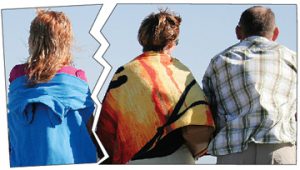
Irene saw her son as a good student and a great kid.
But their relationship seemed to change, collapsing overnight.
“Maybe I didn’t see the signs, I don’t know,” says Irene, her name changed to protect her son’s identity. “He dropped out of school, and things got so bad that we had intervention from various agencies.”
The reason for the baffling change in her son’s behaviour was simple — he became addicted to drugs.
The single mom with an administration job didn’t know what to do.
“As a parent you feel when things like this happen, it’s very hard to share it with people, with relatives or friends, because you feel embarrassed, ashamed,” Irene says. “You feel inadequate as a parent, and you feel it’s your fault.”
Her son’s acting out got him expelled from school after buying narcotics on its property — something Irene says was the lowest point in his downfall.
But the school did not cast him aside.
“He sort of got rescued through (their) co-op program, which was fantastic,” she says. “A condition of him going back to school was to go into counseling, which is something I could not get him to do.”
And it was on the school’s suggestion that Irene check out the small organization known as Parents in Transition.
The peer support group helps parents cope with misbehaving kids through weekly gatherings.
Headed by executive director Donna Culbert, the 25 year-old grassroots organization was the brainchild of Judith Kennedy, a mother of five difficult teenagers.
Kennedy contacted the parents of her kids’ friends and asked them if they shared the same problems she was facing with her brood. The answer was yes and PIT was born.
Fluctuating between 15-60 members, Parents in Transition meets in the Yonge and Lawrence area at St. Timothy’s Anglican Church during the summer and at Blessed Sacrament Catholic School for the rest.
The group was a lifesaver for Irene and Culbert who had a daughter going her own growing pains.
But Culbert stresses Parents in Transition is more a working organization offering confidentiality and a non-judgmental atmosphere for parents.
“You’ve got issues with your young person, and you need the shoulder-to-cry-on, but you also don’t like where you are,” says Culbert. “So, the whole idea is we change that.”
The group listens to guest speakers and works in smaller groups to hash out strategies to reach out to their children and change the dynamic of the family relationship.
Issues run the gamut from simple truancy to mental health to substance abuse.
“If the problem is important enough to cause concern for the parent, then it’s important enough to come to the group,” Culbert says. “You know this is not a competition for bad behaviour in kids.”
PIT helps parents to place the responsiblity for their child’s actions where they belong — with the child him or herself.
“It’s very difficult,” Culbert says. “Our first impotence is to protect them … to coddle them, but what they really need is to taste life the way it really is — experience the consequences of their behaviour.”
One consequence is the strain on the family unit. It’s something mother Cecelia (not her real name), a member and facilitator of PIT, has experienced.
Her son was deep into drugs, and his addiction left the fabric of the family in tatters, as Cecelia and her husband could not agree on how to discipline their boy.
“What happens when children get into trouble is there’s a tendency for parents to lay blame on the other spouse,” says Cecelia. “And this can destroy marriages and ultimately destroy the whole family when one kid acts out.
“If you asked my husband, he would say (PIT) really saved our marriage.”
But a caveat to seeking help from the healthcare system — it’s mired in waiting lists and red tape is the child has to agree to seek help.
“Even if you find a placement for your kid, it has to be on a voluntary basis, which makes it very difficult, because they’re out there having a good time and they don’t even see they have a problem,” says Culbert. “And when you get them in (rehab) the expense is horrendous.”
That’s where PIT plays a role in helping parents chop through the brambles that grow when a child’s behaviour gets out of hand.
The work done at the group has helped both Cecelia and Irene, so much so that both of them now volunteer in the organization.
And they’ve seen the results.
Cecelia’s son is improving, though not out of the minefield.
And Irene’s son has been sober for 10 months after a bought with respiratory problems, which was aggravated by his drug use. He has since continued his studies.
“During the time he was hospitalized he stopped all drugs cold turkey,” she says. “So he’s doing good. He’s living at home and we have a good relationship again.”
